Thoughts About Careers: Q & A Interview with Mikaela Sifuentes
Mikaela Sifuentes is currently a Ph.D. candidate at the University of Texas Health Science Center in the Pharmacology program.
When did you first
become interested in pharmacology or science?
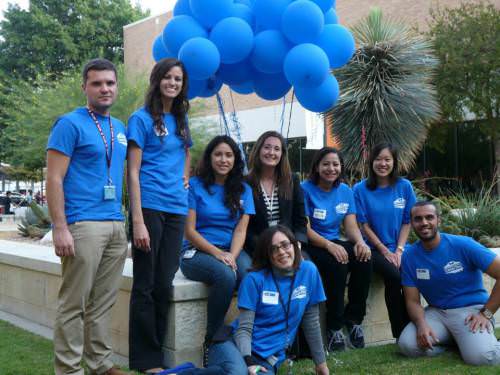
I’ve been interested in science my entire life.
My parents were both
teachers and as far back as I can remember we had bookshelves filled with
educational books, which captured my fascination. I was encouraged to follow my
curiosity, and this led me to reading about the science of just about anything
that I could find a book on.
My enthusiasm for understanding the way things
worked eventually came back to humans, initially in biology and later
developing into an interest in psychology in high school. I debated with myself
over which study I should pursue, and finally found a solution when I
discovered neuroscience, which brings these two studies together. I was
inspired by a book by neuroscientist Vilayanur
Ramachandran, and since then the study of the brain has seemed to be the
ultimate science frontier for me.
Why did you attend
the Career Advisory Council Workshop?
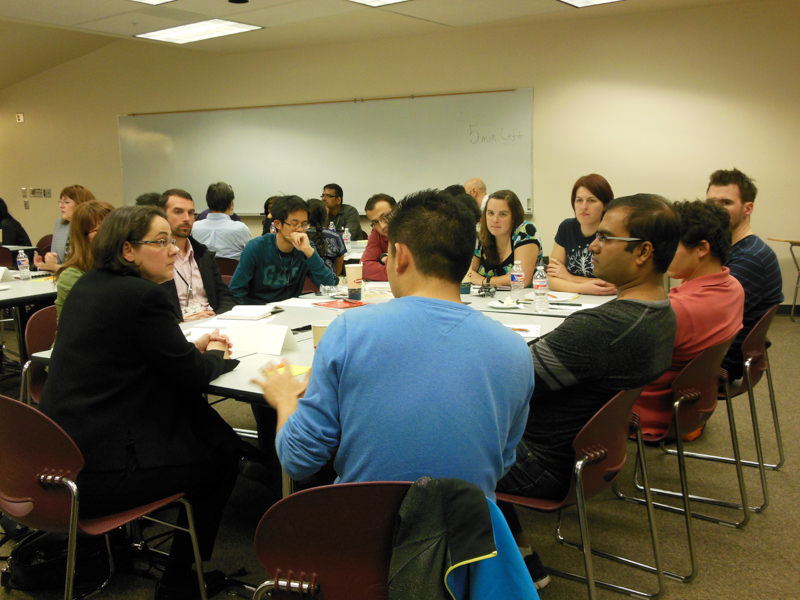
I’m interested in learning more about careers outside of academia. Focusing
solely on academia tends to put you inside a bubble, and I think it’s important
to consider other career pathways and what makes a scientist an all-round desirable
employee.
When you begin a doctoral program, the end seems
so far away in the distance, but it’s never too early to start learning about
what options are available to you, especially when you realize that you can
begin your preparation right now.
Use
the experiences of others to your advantage and network with people who have
walked the path to success. This will help you identify and strengthen the
skills you need in order to succeed in your own career.
It’s important for me to attend events such as the Career Advisory Council Workshop to get advice from professionals who have become successful in their endeavors, and to learn from their experience.
What speaker at the
Career Advisory Council Workshop did you connect most to and why?
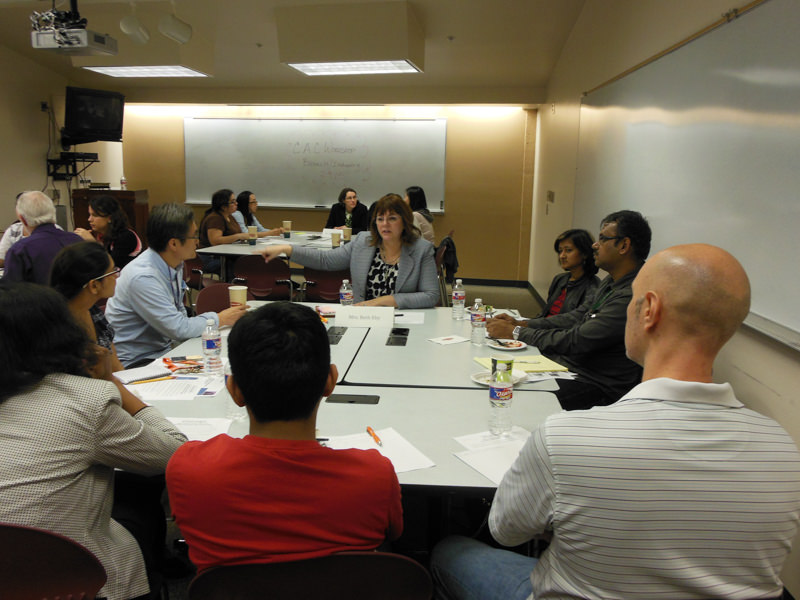
I felt that I connected most with Beth
Eby, who wasn’t originally one of the speakers but subbed in. She has a
sort of generalist expertise, and her experience working with industry
professionals was very helpful, especially with her emphasis on networking and
face-to-face communication.
She described herself as a former shy person who
kept practicing at networking until she became an expert in it, which is a
strategy I have been working on since I’m shy myself. She simplified networking
into a system that she knows works, and I know that I can take that system and
apply it not only in industry, but in other career paths.
What are your career goals? Do you feel adequately prepared for your
career?
After I finish my Ph.D, I’d like to devote my efforts toward
science advocacy. Research is important to me, but as I get to better
understand the context of that research – within the politics of funding,
publications, and workplace dynamics – I think it’s just as or even more
important to influence what happens to that data after it leaves the lab
workbench.
Especially in a biomedical research institution like the UT Health Science Center, it is critical for
our work to move beyond academia and influence public life, whether that be
through outreach programs, policymaking, public accountability, or clinical
connections. In order to maintain the integrity of scientific research, we need
to make sure it is being conducted in a culture that can allow it to thrive.
Why did you choose
the UT Health Science Center?
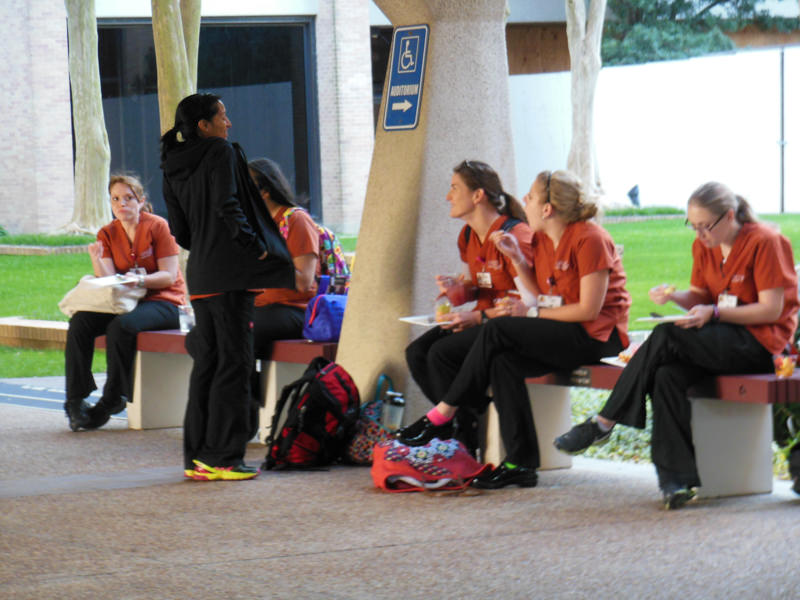
I picked the UT Health Science Center because I appreciated
the way this institution acts as a nexus between many different science and
health disciplines. Although I study neuroscience, my program
allowed me to form strong relationships with students in fields such as cancer
and virology. Beyond the research, I was able to shadow medical professionals
in the University
Hospital neurology unit, which put a human face to my own research on
stroke and brain trauma. This kind of education can only be experienced
first-hand, and I feel that getting it here at this institution helps me become
a more well-rounded scientist.
Why is it important
for you to learn about different career opportunities?
Learning about different career opportunities is important to me
because the environment in which we conduct research is changing. Tenure-track
professorships are becoming harder to secure, government funding has become
more scarce, and the world of scientific publishing is in a state of transition
resulting from fierce competition, advances in information technology, and
alternative publishing models.
Top-tier research universities in the United States are
beginning to inform their graduate students about alternative careers outside
academia, and opportunities for Ph.D. students in other career pathways are
rapidly growing.
Versatility is in high demand, and it may even be considered a
necessity, regardless of your intended career pathway. It would be a mistake for
me to not use this time to prepare myself with the tools that will no doubt aid
me in life after grad school, especially in this rapidly changing job market.
I’m not especially interested in working in industry or
starting my own company, but I am
interested in keeping my options open and making myself as valuable a candidate
as possible.
I know now that I can’t conduct research in a vacuum, and at the
very least learning about these alternative careers can better prepare me for
working with these professionals and understanding the system.
The advice I
received from the speakers at the workshop can certainly be applied to other
avenues of success.
Besides thinking
about careers, what do you like to do outside the lab?
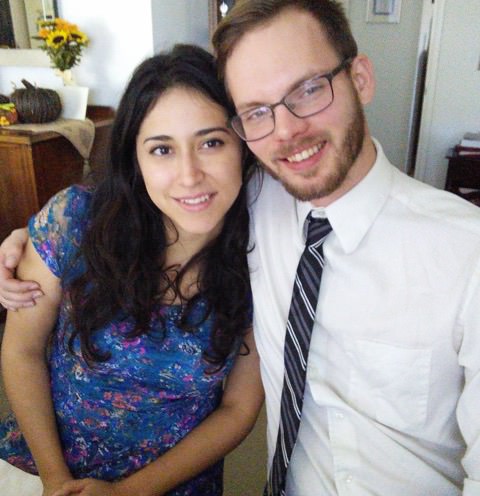
I love exploring places. I like seeing what San Antonio has to offer
in terms of culture, music, and food.
I took up running within the last year
after being inspired by my colleagues in lab, and I’m participating in a 5K
soon with my fiancA©, and we expect to be in many more.
I am also an officer in
the Graduate Student Association
at the UT Health Science Center, so I spend a lot of time interacting with my
fellow grad students and trying to make student life here better.
This article is part of the “Meet The Researcher” series which showcases researchers at the Graduate School of Biomedical Sciences at University of Texas Health Science Center San Antonio.
